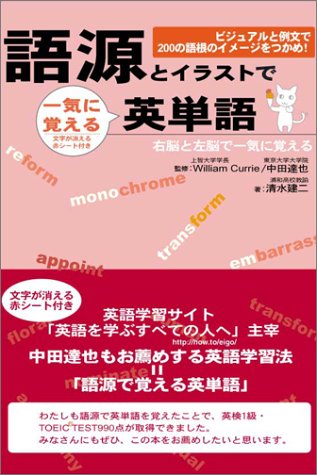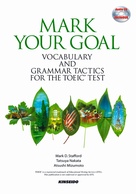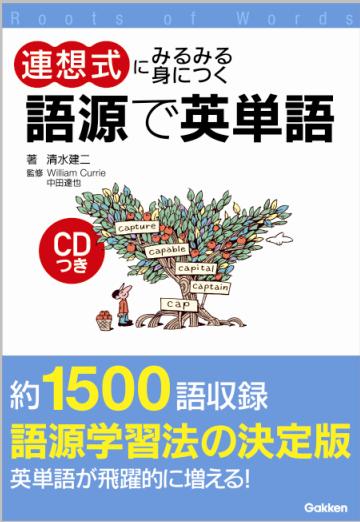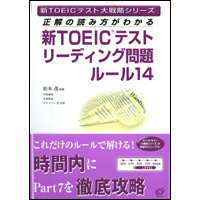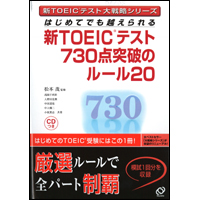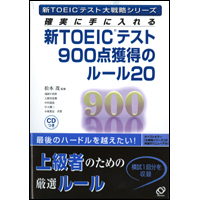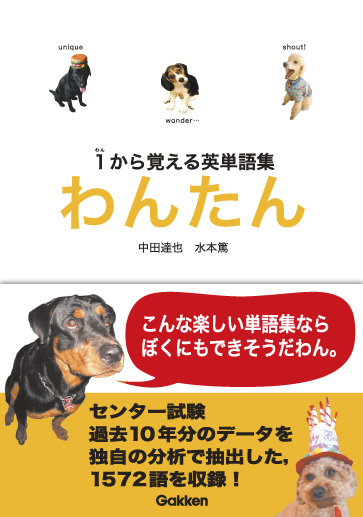Tatsuya Nakata, Ph.D.
Professor, College of Intercultural Communication, Rikkyo University, Japan.
email: nakata [at] rikkyo.ac.jp
Research Interests:
Second language vocabulary learning
Computer-assisted language learning (CALL)
Education:
BA in English and American Literature, College of Arts, Rikkyo University, Japan. March 2002
MA in Language and Information Sciences, Graduate School of Arts and Sciences, The University of Tokyo, Japan. March 2005
PhD in Applied Linguistics, School of Linguistics and Applied Language Studies, Victoria University of Wellington, New Zealand. August 2013.
Thesis title: Optimising second language vocabulary learning from flashcards (Supervisors: Dr Stuart Webb, Prof. Paul Nation; examiners: Prof. Paul Nation, Prof. Rod Ellis, Prof. Jan Hulstijn).
PUBLICATIONS
PRESENTATIONS
RESEARCH GRANTS / SCHOLARSHIPS
AWARDS
PROFESSIONAL SERVICE
EMPLOYMENT
EFL MATERIALS
PUBLICATIONS
Books 書籍
Nakata, T. (2024). 『英語定型表現の科学』Tokyo: 研究社.
 Nakata, T. (2023). 『 最新の第二言語習得研究に基づく 究極の英語学習法 』Tokyo: KADOKAWA.
Nakata, T. (2023). 『 最新の第二言語習得研究に基づく 究極の英語学習法 』Tokyo: KADOKAWA.
 Nakata, T. (2022). 『英語は決まり文句が8割 今日から役立つ「定型表現」学習法』Tokyo: 講談社.
Nakata, T. (2022). 『英語は決まり文句が8割 今日から役立つ「定型表現」学習法』Tokyo: 講談社.
 Nakata, T., & Suzuki, Y. (Eds.). (2022).『英語学習の科学』Tokyo: 研究社.
Nakata, T., & Suzuki, Y. (Eds.). (2022).『英語学習の科学』Tokyo: 研究社.
Nakata, T. (2019). 『英単語学習の科学』 Tokyo: 研究社.
Tokyo: 研究社.
Book sections 書籍(分担執筆)
中田達也. (2021).「英単語の和訳はわかるのにコミュニケーションで使えないのはなぜなのか? 第二言語における明示的・暗示的な語彙知識の発達」(編)鈴木渉・佐久間康之・寺澤孝文『外国語学習での暗示的・明示的知識の役割とは何か』(pp. 49-64) 大修館書店.
 Nakata, T. (2020). Learning words with flash cards and word cards. In S. A. Webb (Ed.), Routledge handbook of vocabulary studies (pp. 304-319). New York, NY: Routledge.
Nakata, T. (2020). Learning words with flash cards and word cards. In S. A. Webb (Ed.), Routledge handbook of vocabulary studies (pp. 304-319). New York, NY: Routledge.
中田達也. (2019).「第1章 海外留学に向けての出願」「第2章 海外現地での授業参観」(編著)佐野富士子・小田寛人『英語教師力アップシリーズ第 5 巻授業力アップのための英語情報マニュアル』(pp. 2–13) 開拓社.
 Quinn, P., & Nakata, T. (2017). The timing of oral corrective feedback. In H. Nassaji & E. Kartchava (Eds.), Corrective feedback in second language teaching and learning: Research, theory, applications, implications (pp. 35-47). New York, NY: Routledge.
Quinn, P., & Nakata, T. (2017). The timing of oral corrective feedback. In H. Nassaji & E. Kartchava (Eds.), Corrective feedback in second language teaching and learning: Research, theory, applications, implications (pp. 35-47). New York, NY: Routledge.
Nakata, T. (2017). 「第9章 語彙指導」[Chapter 9. Vocabulary instruction.] In W, Suzuki (Ed.), 『実践例で学ぶ第二言語習得研究に基づく英語指導[Teaching English from a second language acquisition perspective]』 (pp. 124-140) Tokyo: Taishukan-shoten.
Nakata, T. (2017). 「第2章 単語・語彙の獲得」[Chapter 2. Acquisition of words and vocabulary] In T, Nishihara (Ed.), 『朝倉日英対照言語学シリーズ 発展編 2 心理言語学[Psycholinguistics]』 (pp. 41-71) Tokyo: Asakura-shoten.
 Nakata, T., & Webb, S. A. (2016). Vocabulary learning exercises: Evaluating a selection of exercises commonly featured in language learning materials. In B. Tomlinson (Ed.), SLA research and materials development for language learning (pp. 123-138).New York, NY: Routledge.
Nakata, T., & Webb, S. A. (2016). Vocabulary learning exercises: Evaluating a selection of exercises commonly featured in language learning materials. In B. Tomlinson (Ed.), SLA research and materials development for language learning (pp. 123-138).New York, NY: Routledge.
Nakata, T. (2013). Web-based lexical resources. In C. Chapelle (Ed.) Encyclopedia of Applied Linguistics (pp. 6166–6177). Oxford, UK; Wiley. [Invited / Peer reviewed]
Nakata, T. (2012). 「相関分析入門(2)―関係や結果を予測するには」[Regression analysis]. In O. Takeuchi & A. Mizumoto (Eds.), 『外国語教育研究ハンドブックー研究手法のより良い理解のためにー 』 [A handbook of foreign language education and research] (pp. 132-146). Tokyo: Shohakusha.
Nakata, T. (2009). The role of positive evidence for L2 lexico-semantic development: From perspectives of prototype, item learning, and rule forming (in Japanese). In Foreign Language Teaching Association, The University of Tokyo (Ed.), On the frontiers of foreign language education: From four skills to intercultural communication (pp. 2-14). Tokyo: Seibido. [Peer reviewed]
Nakata, T. (2004). English word lists for Japanese learners: JACET 8000 and SVL 12000 (in Japanese). In JACET Basic Words Revision Committee (Ed.), How to make the best of JACET 8000: For educational and research application (pp. 58-59). Tokyo: The Japan Association of College English Teachers.
Articles in refereed journals 論文
Nakata, T. (in press). Research on second language vocabulary acquisition: Current status and future directions. Second Language. [Invited]
Kaitsu, T. & Nakata, T. (2025). Analysis of smartphone-based flashcard apps for second language vocabulary acquisition. Computer Assisted Language Learning. [PDF]
Rogers, J., Nakata, T., & Chiu, M. M. (2025). Optimizing distributed practice online: A conceptual replication of Cepeda et al. (2009). Studies in Second Language Acquisition, 47(1) , 417-439.
Suzuki, Y., Nakata, T., & He, X. (2025). Efficiency trumps aptitude: Individualizing computer-assisted second language vocabulary learning. ReCALL, 37(1), 96-113.
Yamagata, S., Nakata, T., & Rogers, J. (2024). On effective learning of English collocations: From perspectives of distributed practice and semantic restructuring. TESOL Journal. 15, e767.
Nakata, T., Suzuki, Y., & He, X. (2023). Costs and benefits of spacing for second language vocabulary learning: Does relearning override the positive and negative effects of spacing? Language Learning. 73, 799-834. [PDF]
Yamagata, S., Nakata, T., & Rogers, J. (2023). Effects of distributed practice on the acquisition of verb-noun collocations. Studies in Second Language Acquisition. 45, 291-317.
Saito, K., Sun, H., Kachlicka, M., Robert, J., Nakata, T., & Tierney, A. (2022). Domain-general auditory processing explains multiple dimensions of L2 acquisition in adulthood. Studies in Second Language Acquisition. 44, 57-86. (Awarded The Albert Valdman Award for outstanding publication in 2022)
中田達也. (2022). 分散学習が第二言語語彙知識の発達に与える影響 ―自動化とコロケーション知識の観点から―. 『ことばの科学研究』21, 9–11.
Nakata, T. & Elgort, I. (2021). Effects of spacing on contextual vocabulary learning: Spacing facilitates the acquisition of explicit, but not tacit, vocabulary knowledge. Second Language Research, 37, 233-260. doi:10.1177/0267658320927764
Nakata, T. , Tada, S., McLean, S., & Kim, Y. A. (2021). Effects of distributed retrieval practice over a semester: Cumulative tests as a way to facilitate second language vocabulary learning. TESOL Quarterly. 55, 248-270. doi:10.1002/tesq.596
Suzuki, Y., Nakata, T., & DeKeyser, R. (2020). Empirical feasibility of the desirable difficulty framework: Toward more systematic research on L2 practice for broader pedagogical implications. The Modern Language Journal, 104, 313-319. doi:10.1111/modl.12625 [Invited]
Nakata, T., Tamura, Y., & Aubrey, S. (2020). Examining the validity of the LexTALE test for Japanese college students. The Journal of Asia TEFL. 17(2), 335-348. doi: 10.18823/asiatefl.2020.17.2.2.335
Nakata, T. (2020). Vocabulary and computer technology: A commentary on four studies for JALT Vocabulary SIG. Vocabulary Learning and Instruction, 9, 39-47. doi:10.7820/vli.v09.2.nakata [Invited]
Nakata, T., & Suzuki, Y. (2019a). Effects of massing and spacing on the learning of semantically related and unrelated words. Studies in Second Language Acquisition. 41, 287–311. doi:10.1017/S0272263118000219 [PDF] [Supplementary materials]
Nakata, T., & Suzuki, Y. (2019b). Mixing grammar exercises facilitates long-term retention: Effects of blocking, interleaving, and increasing practice. The Modern Language Journal. 103, 629-647. doi:10.1111/modl.12581
Suzuki, Y., Nakata, T., & DeKeyser, R. (2019a). Optimizing second language practice in the classroom: Perspectives from cognitive psychology. The Modern Language Journal. 103, 551-561. doi:10.1111/modl.12582
Suzuki, Y., Nakata, T., & DeKeyser, R. (2019b). The desirable difficulty framework as a theoretical foundation for optimizing and researching second language practice. The Modern Language Journal. 103, 713-720. doi:10.1111/modl.12585
Nakata, T. (2017). Does repeated practice make perfect? The effects of within-session repeated retrieval on second language vocabulary learning. Studies in Second Language Acquisition. 39, 653-679. doi:10.1017/S0272263116000280 [PDF]
Nakata, T., & Webb, S. A. (2016). Does studying vocabulary in smaller sets increase learning? The effects of part and whole learning on second language vocabulary acquisition. Studies in Second Language Acquisition, 38, 523-552. doi: 10.1017/S0272263115000236 [PDF]
Nakata, T. (2016). Effects of retrieval formats on second language vocabulary learning. International Review of Applied Linguistics in Language Teaching, 54, 257–289. doi:10.1515/iral-2015-0022
Nakata, T. (2015a). Effects of expanding and equal spacing on second language vocabulary learning: Does gradually increasing spacing increase vocabulary learning? Studies in Second Language Acquisition, 37, 677-711. doi: 10.1017/S0272263114000825 [PDF]
Nakata, T. (2015b). Effects of feedback timing on second language vocabulary learning: Does delaying feedback increase learning? Language Teaching Research, 19, 416-434. doi:10.1177/1362168814541721 [PDF]
Nakata, T. (2015c). Are learners aware of effective ways to learn second language vocabulary from retrieval? Learners’ perceived effects of relative spacing, absolute spacing, and feedback timing on vocabulary learning.Vocabulary Learning and Instruction. 4, 66-73. doi: 10.7820/vli.v04.1.nakata [Invited]
Rogers, J., Webb, S. A., & Nakata, T. (2015). Do the cognacy characteristics of loanwords make them more easily learned than noncognates? Language Teaching Research. 19, 9-27. doi: 10.1177/1362168814541752 [PDF]
Nakata, T. (2011). Computer-assisted second language vocabulary learning in a paired-associate paradigm: A critical investigation of flashcard software. Computer Assisted Language Learning, 24, 17-38. doi:10.1080/09588221.2010.520675 [Cited by …] [PDF]
Nakata, T. (2009).The effects of positive evidence and metalinguistic information on L2 lexico-semantic development. JACET Journal, 49, 1-13.
Nakata, T. (2008). English vocabulary learning with word lists, word cards, and computers: Implications from cognitive psychology research for optimal spaced learning. ReCALL, 20, 3-20. doi:10.1017/S0958344008000219. [Awarded EUROCALL Research Award, from European Association for Computer-Assisted Language Learning, March, 2007] [Cited by …]
Nakata, T. (2007a). Learning formulaic sequences with the Low-First Spaced Learning Method (in Japanese). Language and Information Sciences (University of Tokyo), 5, 165-180.
Nakata, T. (2007b). English collocation learning through meaning-focused and form-focused tasks. Bulletin of Foreign Language Teaching Association (University of Tokyo), 11, 51-68.[Cited by …]
Nakata, T. (2006a). English vocabulary learning based on the reactivation theory of spacing effects: Examination of the effects of structural elaboration as corrective feedback. Language and Information Sciences (University of Tokyo), 4, 229-242. [Cited by …]
Nakata, T. (2006b). Implementing optimal spaced learning for English vocabulary learning: Towards improvement of the Low-First Method derived from the reactivation theory. The JALT CALL Journal, 2, 19-36. [Cited by …]
Non-refereed publications
中田達也. (2024). 書評『AI・機械翻訳と英語学習 教育実践から見えてきた未来』『英語教育』73(5), 72.
中田達也(編). (2023). 立教大学英語教育研究所研究成果報告書第13号.
Nakata, T. & Uchihara, T. (2020). 新しい日常における英語語彙指導(2):学習方略指導と語彙テストの観点から. 『英語教育』69(9), 68-69. 【オンライン追加情報】
Nakata, T., Yanagisawa, A., & Eguchi, M. (2020). 新しい日常における英語語彙指導(1):カリキュラム計画の観点から. 『英語教育』69(8), 74-75. 【オンライン追加情報】
Nakata, T. (2018). 復習間隔を少しずつ広げていくことは長期的な記憶保持を促進するか? 先行研究の批判的検証 『外国語教育研究』(関西大学外国語学部紀要)19. 35-54.
Nakata, T. (2016). 語彙習得研究の知見を元に日々の語彙テストを最大限に活用する. 『英語教育』65(3). 19-21.
Nakata, T. (2009). Development and examination of a test of English word meanings for Japanese learners: Scoring based on correctness and confidence level (in Japanese). STEP Bulletin (Society for Testing English Proficiency). 21, 78-95.
Nakata, T. (2007). English collocation learning through meaning-focused and form-focused activities: Interactions of activity types and L1-L2 congruence. Proceedings of the 11th Conference of Pan-Pacific Association of Applied Linguistics. 154-168.
Nakata, T. (2006). English vocabulary learning with or without computers: A test of the effectiveness of the Low-First spaced learning method (in Japanese). Proceedings of the 46th National Conference of the Japan Association for Language Education and Technology, 195-204.
Nakata, T. (2003). A case study of Spanish teaching at Washington and Lee University in the U.S. and Rikkyo university in Japan and its implications on Japan’s English education. The Rikkyo Review (Rikkyo University), 63, 181-211.
Projects commissioned by the Japanese Ministry of Education, Culture, Sports, Science and Technology
Yamauchi, Y., Nakata, T., Miyao, H., Tomono, K., Matsumoto, M., & Fujita, H. (2006). ICTキュービック[ICT for Teacher Training: A web-based training system for high school English teachers]. Ministry of Education, Culture, Sports, Science and Technology. Available online at <http://www.nicer.go.jp/ict3/>.
Yamauchi, Y., Nakata, T., Miyao, H., Ohta, H., Sato, S., Tomono, K., Inoue, Y., & Oguchi, T. (2004). e授業Web研修システム [E-Classes: A web-based training system for high school English teachers]. Ministry of Education, Culture, Sports, Science and Technology. Available online at <http://www.nicer.go.jp/eltt/english/juniorhigh/> and <http://www.nicer.go.jp/eltt/english/high/>.
SELECTED PRESENTATIONS 学会発表
中田達也. (2025). 英語定型表現の指導:コーパスと生成AIを活用して. 北海道英語教育学会第26回研究大会北海道英語教育学会第26回研究大会.(特別講演)
Nakata, T. (2024). Second language vocabulary learning using flashcards. 58th RELC International Conference (Singapore). [Invited / Plenary Paper]
Patel, M., Reinders, H., Hafner, C., Nakata, T., Gerlach, D. & Yeo, M. (2024). Future-proofing language education: Human values, digital tools, and innovative strategies. 58th RELC International Conference (Singapore). [Invited symposium]
Nakata, T. (2024). Research on second language vocabulary acquisition: Current status and future directions. 第24回日本第二言語習得学会国際年次大会. [Invited symposium]
中田達也. (2024). 英語定型表現の検索と学習. 英語コーパス学会2024年度春季研究会. [Invited]
中田達也. (2024). 第二言語語彙学習における効果的なPractice:どのような練習をいつ行うべきか? 外国語教育メディア学会(LET)関西支部 基礎理論研究部会主催 2023年度 公開講演会.(招待講演)
Zheng, G., Clenton, J., Nakata, T., & Boutorwick, T. (2023). Can spaced retrieval improve both explicit and tacit vocabulary knowledge in flashcard-based learning? Vocab@Vic 2023 Conference.
中田達也・John Rogers・Ming Ming Chiu. (2023). クラウドにより収集された第二言語語彙習得データの質:Cepeda et al. (2009)のオンラインによる追試. 第二言語語彙習得研究の最前線:英語語彙の学習・教材・テスト(立教大学異文化コミュニケーション学部・英語教育研究所主催公開講演会).(招待発表)
中田達也. (2023). 第二言語語彙学習の効果を高める方法-テスト効果と分散効果に着目して-. 第55 回日本言語テスト学会研究例会.(招待講演)
Rogers, J., Nakata, T., & Chiu, M. M. (2023). Data quality and validity of online vs. laboratory longitudinal experiments. The 2023 American Association for Applied Linguistics (AAAL) Conference.
Nakata, T., & Elgort, I. (2021). Effects of massed and spaced distribution on the acquisition of explicit and tacit vocabulary knowledge. The 30th Annual Conference of the European Second Language Association (EuroSLA).
Tada, S., Nakata, T. & McLean, S. (2021). Effects of distributed practice over a semester: Cumulative tests as a way to facilitate second language vocabulary learning. The 30th Annual Conference of the European Second Language Association (EuroSLA).
Yamagata, S., Nakata, T., & Rogers, J. (2021). Effects of spacing and massing on the acquisition of verb-noun collocations: From item learning and system learning perspectives. The 30th Annual Conference of the European Second Language Association (EuroSLA).
中田達也. (2021). 分散学習が第二言語語彙知識の発達に与える影響:自動化とコロケーション知識の観点から. ことばの科学会オープンフォーラム.(招待講演)
Nakata, T., & Elgort, I. (2019). Does spacing facilitate contextual vocabulary learning? Effects of practice distribution on the acquisition of explicit and tacit vocabulary knowledge. Vocab@Leuven Conference.
中田達也. (2019). 「第二言語習得研究に基づく効果的な英語語彙指導」東京家政大学第 17 回英語教育シンポジウム(招待講演)
中田達也. (2019). 「第二言語習得研究から考える効果的な英単語学習法-学習スケジュールおよび学習方式の効果-」法政大学英文学会総会(招待講演)
Nakata, T. & Suzuki, Y. (2018). Effects of blocking and interleaving on second language grammar learning. Asia TEFL 2018.
Nakata, T., & Elgort, I. (2018). Effects of spacing on contextual vocabulary learning. Japan Second Language Acquisition Research Forum 2nd Meeting.
Nakata, T. (2018). How temporal spacing facilitates second language vocabulary learning: Some empirical evidence and directions for future research. 外国語教育メディア学会メソドロジー研究部会2018年度第1回研究会.
Nakata, T. & Suzuki, Y. (2017). Does spacing reduce the interference effect? Effects of massing and spacing on the learning of semantically related and unrelated words. The 27th Annual Conference of the European Second Language Association (EuroSLA), Reading, UK.
Nakata, T. (2017). Second language vocabulary learning from retrieval. Invited presentation at the International Forum on Second Language Lexical Processing and Acquisition, JACET Special Interest Group on Reading. [Invited]
Nakata, T. (2017). The effects of spacing on second language vocabulary learning. Invited lecture at the Cognitive Approaches to Second Language Acquisition (CASLA) research group, The University of Amsterdam. [Invited]
Nakata, T. & Suzuki, Y. (2017). The effects of interleaving on second language grammar learning. Japan Second Language Acquisition Research Forum 1st Meeting.
Shintani, N., Saito, K., Nakata, T. & Suzuki, Y. (2017). 「明示的指導の理論と実践:発音・語彙・文法習得への可能性を検証する」関西英語教育学会・外国語教育メディア学会関西支部共催研究大会・シンポジウム. [Invited colloquium]
Nakata, T. & Suzuki, Y. (2017). 「分散学習は意味的に関連した単語の習得を促進するか?:干渉効果と分散効果の検証」関西英語教育学会・外国語教育メディア学会関西支部共催研究大会. [Invited]
Nakata, T. (2017). Optimizing computer-based second language vocabulary learning. Invited lecture at Okayama JALT Monthly Meeting. [Invited]
Nakata, T. (2016). Effects of within-session repeated retrieval on second language vocabulary learning. Vocab@Tokyo Conference 2016.
Nakata, T & Mizumoto, A. (2016). 「文献ソフトMendeleyとZoteroの紹介」外国語教育メディア学会メソドロジー研究部会2016年度第1回研究会.
Nakata, T. (2016). 「単語カードを使った英語語彙学習」・「IT を活用した英語語彙指導」 Invited lecture at Miyagi University of Education, Japan. [Invited]
Nakata, T. (2015a). Does studying vocabulary in smaller sets increase learning? Effects of whole and part learning on second language vocabulary acquisition. The 25th Annual Conference of the European Second Language Association (EuroSLA), Aix-en-Provence, France.
Nakata, T. (2015b). Are learners aware of effective ways to learn second language vocabulary from retrieval? Perceived effects of relative spacing, absolute spacing, and feedback timing on vocabulary learning. JALT Vocabulary Special Interest Group Symposium, Fukuoka, Japan. [Invited]
Nakata, T. (2015c). Optimizing second language vocabulary learning. Invited lecture at JACET Kanto Chapter Monthly Meeting, Tokyo, Japan. [Invited]
Nakata, T. (2013). Does gradually increasing spacing increase second language vocabulary learning? Vocab@Vic 2013, Wellington, New Zealand.
Nakata, T. (2012). Effects of expanding and equal spacing on second language vocabulary learning: Do the amount of spacing and retention interval make a difference? The 22nd Annual Conference of the European Second Language Association (EuroSLA), Poznań, Poland. [Awarded EuroSLA Doctoral Award]
Nakata, T. (2011a). The effects of block size on L2 vocabulary learning. 1st Auckland Postgraduate Conference on Linguistics and Applied Linguistics, Auckland, New Zealand.
Nakata, T. (2011b). Effects of expanding and equal spacing on second language vocabulary learning. Seminar presented in the School of Linguistics and Applied Language Studies Research Seminar Series, Victoria University of Wellington, New Zealand.
Nakata, T. (2006). English collocation learning through meaning-focused and form-focused activities: Interactions of activity types and L1-L2 congruence. 11th Pan-Pacific Association of Applied Linguistics Conference, Chuncheon, South Korea.
AWARDS 学術賞
学術賞(テクノロジーを使用した外国語語彙学習に関する研究), from 外国語教育メディア学会, August, 2023.
The Albert Valdman Award for outstanding publication in 2022, from Studies in Second Language Acquisition (Cambridge University Press), March, 2023.
World’s Top 2% Scientists, Stanford University / Elsevier, November, 2022.
Victoria Doctoral Completion Award (NZ$5,000), from Victoria University of Wellington, May, 2013.
EuroSLA Doctoral Award, from European Second Language Association, September, 2012.
EUROCALL Research Award, from European Association for Computer-Assisted Language Learning, March, 2007.
RESEARCH GRANTS / SCHOLARSHIPS 研究費
Grants
Principle Investigator, Grant-in-Aid for Scientific Research (C) #25K04375科学研究費基盤C, 4,550,000 yen, from Japan Society for the Promotion of Science. Apr. 2025 – Mar. 2028.
Co-Investigator, Grant-in-Aid for Scientific Research (C) #25K04252 科学研究費基盤C, 4,550,000 yen, from Japan Society for the Promotion of Science. Apr. 2025 – Mar. 2028.
Co-Investigator, JALT Research Grant, from Japan Association for Language Teachers. Apr. 2025 – Mar. 2026.
Co-Investigator, Grant-in-Aid for Scientific Research (C) #24K04110 科学研究費基盤C, 4,550,000 yen, from Japan Society for the Promotion of Science. Apr. 2024 – Mar. 2027.
Principle Investigator, 立教大学学術推進特別重点資金(国際研究論文掲載経費補助), from Rikkyo University. 2023.
Principle Investigator, Grant-in-Aid for Scientific Research (C) #22K00743 科学研究費基盤C, 4,160,000 yen, from Japan Society for the Promotion of Science. Apr. 2022 – Mar. 2025.
Principle Investigator, 立教大学学術推進特別重点資金(国際研究論文掲載経費補助), from Rikkyo University. 2020.
Principle Investigator, Grant-in-Aid for Young Scientists #19K13306 科学研究費若手研究, 4,160,000 yen, from Japan Society for the Promotion of Science. Apr. 2019 – Mar. 2022.
Principle Investigator, Kansai University Fund for Supporting Young Scholars (関西大学若手研究者育成経費), 1,680,000 yen, from Kansai University, Apr. 2018 – Mar. 2019 (with Scott Aubrey, Yu Tamura, and Kazuya Saito).「第二言語スピーキングの評価および発達における語彙知識の役割」
Principle Investigator, Grant-in-Aid for Young Scientists (A) #16H05943 科学研究費若手研究(A), 6,500,000 yen, from Japan Society for the Promotion of Science. Apr. 2016 – Mar. 2019.
Principle Investigator, Grant-in-Aid for Research Activity Start-up (#15H06746) 科学研究費研究支援スタートアップ, 1,430,000 yen, from Japan Society for the Promotion of Science. Oct. 2015 – Mar. 2016.
Principle Investigator, Faculty Research Grant, NZ$3,007.94, from Victoria University of Wellington, May 2012 – Sep. 2012.
Principle Investigator, Faculty Research Grant, NZ$750.00, from Victoria University of Wellington, Jun. 2011 – Sep. 2011.
Principle Investigator, Faculty Research Grant (conference grant), NZ$242.09, from Victoria University of Wellington, Mar. 2011.
Principle Investigator, Faculty Research Grant, NZ$1,999.97, from Victoria University of Wellington, Jun. 2010 – Apr. 2011.
Principle Investigator, Doctoral Research Grant, 150,000 yen, from The University of Tokyo, Aug. – Oct. 2009.
Principle Investigator, Doctoral Research Grant, 300,000 yen, from The University of Tokyo, Oct. 2008 – Mar. 2009.
Principle Investigator, The 21st Eiken Research Grant, 290,000 yen, from Society for Testing English Proficiency, Jul. 2008.
Scholarships
Student Exchange Support Program (Long-Term Study Abroad) Scholarship, Full tuition + 119,000 yen per month, from Japan Student Services Organization, Dec. 2009 – Nov. 2010. (Full tuition + 110,000 yen per month from April, 2010).
Victoria PhD Scholarship, from Victoria University of Wellington, Full tuition + NZ$1,750 per month, Dec. 2010 – May 2013.
EMPLOYMENT 職歴
Part-time Instructor of English, Faculty of Human Studies, Musashino University, Japan. Apr. 2005 – Aug. 2009.
Part-time Instructor of English, Center for General Curriculum Development, Rikkyo University, Japan. Sep. 2007 – Aug. 2009.
Program Coordinator, College of Intercultural Communication, Rikkyo University, Japan. Apr. 2008 – Mar. 2009
Teaching Assistant. “Teaching and Learning Vocabulary (LALS 522)” School of Linguistics & Applied Language Studies, Victoria University of Wellington. May – Jun, 2010.
Research Assistant. School of Linguistics & Applied Language Studies, Victoria University of Wellington. April – December, 2012.
Tutor (NZAID), School of Linguistics & Applied Language Studies, Victoria University of Wellington. October – December, 2013.
Tutor, Japanese Programme, School of Languages and Cultures, Victoria University of Wellington. March, 2014 – June, 2014.
Part-time Instructor of English, Center for General Curriculum Development, Rikkyo University, Japan. Sep. 2014 – March, 2015.
Assistant Professor, Faculty of Foreign Language Studies, Kansai University. April 2015 – March 2016.
Associate Professor, Faculty of Foreign Language Studies, Kansai University. April 2016 – March 2019.
Associate Professor, Department of English, Faculty of Letters, Hosei University. April 2019 – March 2020.
Associate Professor, College of Intercultural Communication, Rikkyo University, Japan. April 2020 -March 2023.
Professor, College of Intercultural Communication, Rikkyo University, Japan. April 2023 – Present.
PROFESSIONAL SERVICE
Editorial board member, Studies in Second Language Acquisition, Cambridge University Press, 2023-Present
Editorial board member, Research Methods in Applied Linguistics, Elsevier, 2025-Present
Editorial board member, Vocabulary Learning and Instruction, JALT Vocabulary SIG, 2021-Present
Editorial board member, Journal of Asia TEFL, Asia TEFL, 2025-Present
Guest Editor, Research Methods in Applied Linguistics, Elsevier, 2025-2026
Guest Editor, Modern Language Journal (Vol. 103, Issue 2), Wiley, 2019.
External examiner for PhD dissertations:
University of Queensland, Australia, 2017.
Temple University, Japan Campus, 2023.
PhD follow-up committee, External member:
University of Barcelona, Spain, 2020.
Scientific committee member, Vocab@Leuven, 2019.
Scientific committee member, Vocab@Tokyo, 2016.
Scientific committee member, Tools for L2 Speech, 2022-Present
Ad hoc reviewer for the following:
Studies in Second Language Acquisition, Cambridge University Press, 2016, 2018, 2019, 2020, 2021, 2022, 2023, 2024, 2025.
Language Learning, Wiley, 2017, 2019, 2020, 2021, 2022, 2023, 2024, 2025.
The Modern Language Journal, Wiley, 2016, 2018, 2021, 2022, 2024.
Second Language Research, Sage Press, 2023.
TESOL Quarterly, Wiley, 2018, 2020, 2024, 2025.
Bilingualism: Language and Cognition, Cambridge University Press, 2023, 2024.
Journal of Experimental Psychology: Learning, Memory, and Cognition, American Psychological Association, 2024.
Journal of Educational Psychology, American Psychological Association, 2024.
Applied Cognitive Psychology, Wiley, 2020.
Applied Psycholinguistics, Cambridge University Press, 2018, 2020, 2021, 2025.
Behavior Research Methods, Springer, 2025.
Memory & Cognition, Springer, 2021.
Applied Linguistics, Oxford University Press, 2016.
Language Teaching Research, Sage Press, 2015, 2016, 2018, 2019, 2020, 2021.
Research Methods in Applied Linguistics, Elsevier, 2025.
Reading Research Quarterly, Wiley, 2022.
Language Assessment Quarterly, Taylor & Francis, 2024.
The U.S. National Science Foundation, 2021.
Second Language Acquisition Research Series, Routledge, 2020.
Routledge Handbook of Second Language Acquisition Series, Routledge, 2019.
Language Learning Early Career Research Grant, Wiley, 2021.
International Review of Applied Linguistics in Language Teaching, De Gruyter, 2022, 2023.
Reading in a Foreign Language, National Foreign Language Resource Center and The University of Hawai’i, 2016, 2017.
Language Learning & Technology, The University of Hawai’i and Michigan State University, 2011, 2012, 2013.
Language Awareness, Taylor & Francis, 2020.
RELC Journal, SAGE, 2023.
The Journal of Japanese Linguistics, Walter de Gruyter, 2021.
Humanities and Social Sciences Communications, Springer, 2025.
Psychology in the Schools, Wiley, 2024.
Acta Psychologica, Elsevier, 2023.
Frontiers in Psychology, Frontiers Media, 2021.
System: An International Journal of Educational Technology and Applied Linguistics, Elsevier, 2013, 2015, 2017.
International Journal of Applied Linguistics, Wiley, 2019, 2023.
Computers & Education, Elsevier, 2020.
Foreign Language Annals, Wiley, 2023.
TESOL Journal, Wiley, 2022, 2023.
Computer Assisted Language Learning, Routledge, 2011.
ReCALL, Cambridge University Press, 2019.
International Journal of Multilingualism, Taylor and Francis, 2023, 2024.
Discourse Processes, Routledge, 2009.
SAGE Open, SAGE Publications, 2015.
The Language Learning Journal, Routledge, 2013.
TESL-EJ, TESL-EJ Publications, 2025.
Studies in Second Language Learning and Teaching, Adam Mickiewicz University, 2025.
Encyclopedia of Applied Linguistics. C. Chappelle (Ed.) Oxford, UK; Wiley, 2010.
Behavioral Sciences, MDPI, 2025.
JACET Journal, The Japan Association of College English Teachers, 2023.
JACET Selected Papers, The Japan Association of College English Teachers, 2024.
JALT Journal, Japan Association for Language Teaching, 2022.
Vocabulary Learning and Instruction, JALT Vocabulary SIG, 2015.
The Journal of AsiaTEFL, AsiaTEFL, 2019.
JALT CALL Journal, JALT CALL SIG, 2016,2017.
Vocabulary Education and Research Bulletin (VERB), JALT Vocabulary SIG, 2014, 2015.
外国語教育メディア学会関東支部研究紀要, 2025.
異文化コミュニケーション論集, Rikkyo University, 2020-
ことば・文化・コミュニケーション, Rikkyo University, 2021-
Kansai University Forum for Foreign Language Education (関西大学外国語教育フォーラム), Kansai University, 2015.
American Association of Applied Linguistics (AAAL) Conference, 2019 – 2025.
European Second Language Association (EuroSLA) Conference, 2020.
Vocab@Leuven Conference, 2018.
International Symposium on Mixed and Augmented Reality, 2018.
Vocab@Tokyo Conference, 2018.
Vocab@Vic Conference, Victoria University of Wellington, 2013.
言語科学会年次国際大会(The Japanese Society for Language Sciences Annual International Conference), 2017, 2020.
EFL MATERIALS 英語教材
TV series
Material developer for 「NHK テレビ新3か月トピック英会話:英単語ネットワーク~めざせ10,000語!~《 broadcast by NHK (Japan Broadcasting Corporation). July – September, 2007 and April – June, 2008 .
Material developer for 「NHK ニュースで英会話 オンライン」 broadcast by NHK (Japan Broadcasting Corporation). January – November, 2009 + April, 2013 – Present.
Software
Consultant for みんなのDSゼミナールカンペキ英単語力 (Master English vocabulary: an educational game for Nintendo DS). Tokyo: TDK Core..
Consultant for 暗記君 (Potable Tutor: a mobile learning tool). Nagoya: Makitech.
Books
Nakata. T. & Tulloch. R. ミミタン TOEIC L&R TESTの必修単語がたった1往復の会話で身につく本. Tokyo: 学研プラス.
Tsuchiya, T., Nakata, T. Nakanishi, N., Nishina, Y., Nakagawa, Y., & Yasukochi, T. (2014). CD付はじめてでも500点突破!! TOEIC(R) TEST即効15日計画 [15-day program for the TOEIC(R) Test]. Tokyo: 三修社[Sanshusha].
Irie, I., & Nakata, T. (2011). English脳で覚える英単語ハンドブック[English brain vocabulary builder]. Tokyo: スリーエーネットワーク[3A Network].
Shimizu, K., Currie, W., & Nakata, T. (2009). イラストで記憶に残る 語源ビジュアル英単語[Building English vocabulary using word parts and visuals]. Tokyo: Gakken Publishing .
Mark D. Stafford, Nakata, T, & Mizumoto, A. (2009). Mark your goal: 語彙と文法で攻略するTOEIC(R) Test [Mark your goal: Vocabulary and grammar tactics for the TOEIC Test]. Tokyo: Kinseido Publishing .
Shimizu, K., Currie, W., & Nakata, T. (2008). パーフェクトBOOK 語源とイラストで一気に覚える英単語 [Building English vocabulary using word parts: Perfect]. Tokyo: Asuka Publishing.
Shimizu, K., Currie, W., & Nakata, T. (2007). 語源で英単語 連想式にみるみる身につく[Building English vocabulary using word parts and associations]. Tokyo: Gakken Publishing.
Matsumoto, S., Nakata, T., Kosaka, T., & Kishi, B. (2007). 新TOEICテスト大戦略シリーズ:新TOEICテストリーディング問題ルール14 [Developing skills for the New TOEIC Test: Reading]. Tokyo: Obunsha Publishing.
Matsumoto, S., Asaoka, C., Irinoda, K., Nakata, T., Nakagami, K., & Kosaka, T. (2007a). 新TOEICテスト大戦略シリーズ:新TOEICテスト730点突破のルール20 [Developing skills for the New TOEIC Test: Intermediate]. Tokyo: Obunsha Publishing.
Matsumoto, S., Asaoka, C., Irinoda, K., Nakata, T., Nakagami, K., & Kosaka, T. (2007b). 新TOEICテスト大戦略シリーズ:新TOEICテスト900点突破のルール20 [Developing skills for the New TOEIC Test: Advanced]. Tokyo: Obunsha Publishing.
Mizumoto, A., Corti, M. E., & Nakata, T. (2006). TOEFL TESTによく出る英単語2500 [2500 words you need to know for the TOEFL Test]. Tokyo: Asuka Publishing.
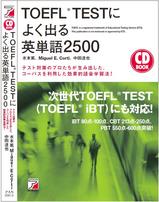
Nakata, T., & Mizumoto, A. (2005). わんたん:1から覚える英単語集 [Wantan: English basic vocabulary builder]. Tokyo: Gakken Publishing.
Shimizu, K., Currie, W., & Nakata, T. (2004). HYPER語源とイラストで一気に覚える英単語 [Building English vocabulary using word parts: Advanced]. Tokyo: Asuka Publishing.

Shimizu, K., Currie, W., & Nakata, T. (2003). 語源とイラストで一気に覚える英単語 [Building English vocabulary using word parts]. Tokyo: Asuka Publishing.
